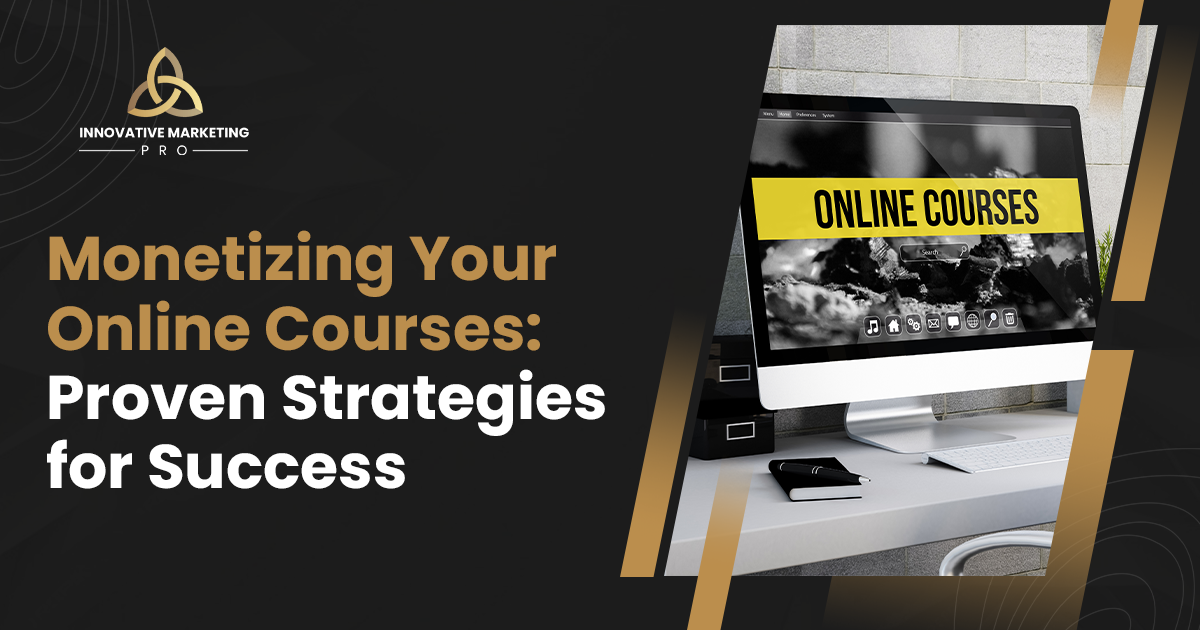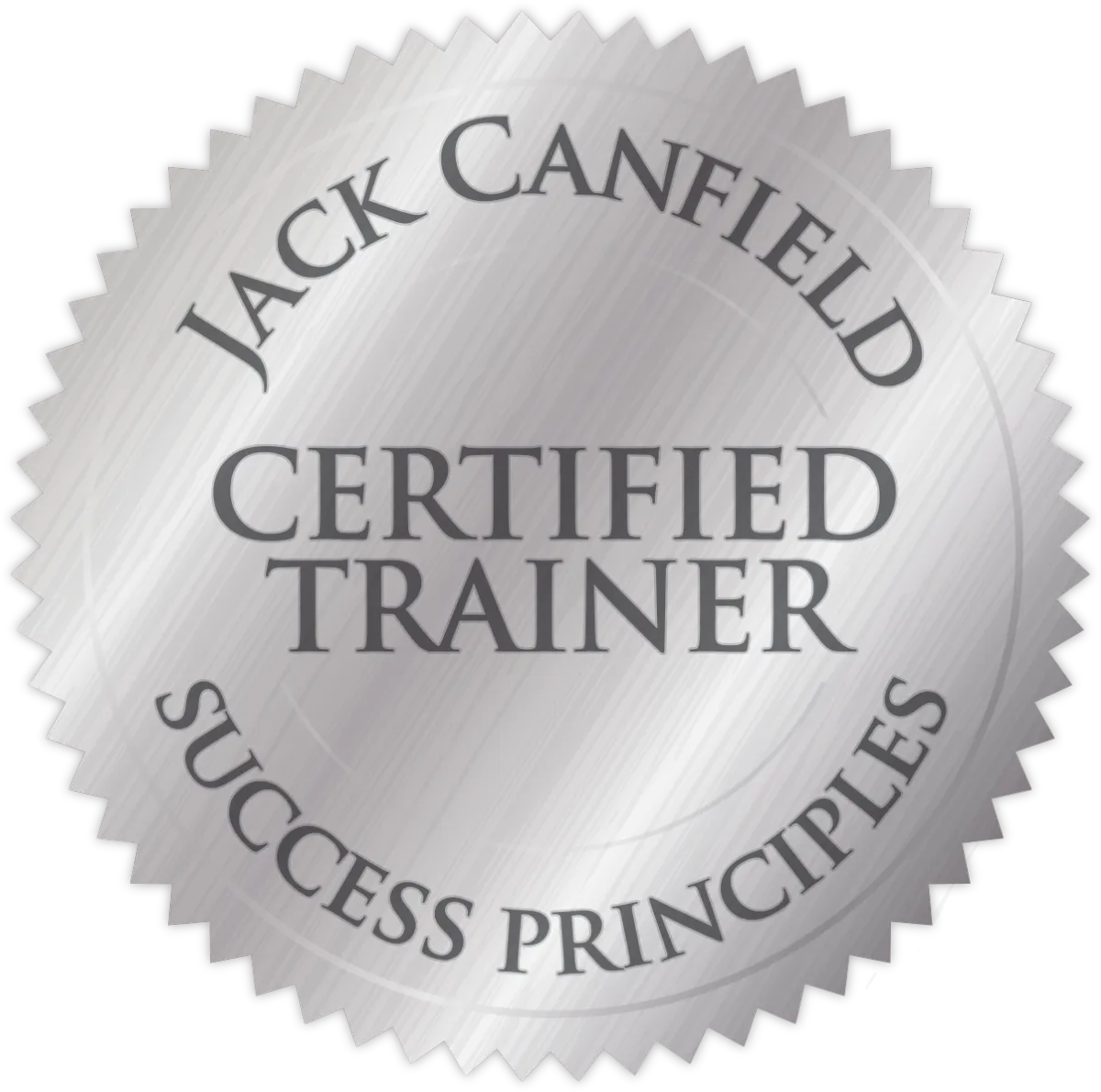Watch The Journey
BLOG
Monetizing Your Online Courses: Proven Strategies for Success
Friday, July 19, 2024
Jeremy Coates

Unlocking the Potential of Online Course Monetization
The online education market has seen a remarkable transformation in recent years, with the rise of digital learning platforms and increased accessibility to educational resources. Monetizing online courses has become an essential strategy for educators and businesses alike, providing not only a lucrative revenue stream but also the opportunity to reach a global audience. In 2020 alone, the global e-learning market was valued at over $250 billion, and it is expected to grow significantly in the coming years. This growth is fueled by advancements in technology, the need for flexible learning solutions, and the increasing recognition of online education's value.
Recent trends indicate a shift towards more interactive and engaging content, with features such as live webinars, interactive quizzes, and community forums becoming standard components of successful online courses. Additionally, the demand for niche courses—covering specialized topics like data science, digital marketing, and personal development—has surged, highlighting the importance of identifying profitable niches. This blog will delve into proven strategies for monetizing online courses, providing valuable insights on selecting the right niche, creating high-quality content, implementing effective pricing models, and leveraging marketing techniques to maximize revenue.
Identifying Profitable Niches and Course Topics

Discovering High-Demand Niches
Selecting a profitable niche is crucial to the success of any online course. A well-chosen niche not only attracts a dedicated audience but also positions the course as a valuable resource within a specific field. To identify a high-demand niche, thorough market research is essential. Begin by exploring trending topics on educational platforms such as Coursera, Udemy, and Skillshare. These platforms often highlight popular courses, giving insight into what learners are currently interested in.
Utilize tools like Google Trends, Keyword Planner, and social media analytics to gauge interest levels and search volume for potential topics. Engaging with online communities on platforms like Reddit, Quora, and LinkedIn can also provide valuable feedback and highlight gaps in existing content. For instance, if you notice a significant number of queries and discussions around sustainable business practices, this could indicate a promising niche.
Successful niches often stem from addressing specific problems or needs that are not sufficiently covered by existing resources. For example, the rise of remote work has increased the demand for courses on virtual team management and productivity tools. Similarly, as digital marketing evolves, courses focusing on the latest SEO strategies or social media advertising techniques are highly sought after. By identifying and capitalizing on these gaps, you can create courses that cater to a ready and eager audience.
Creating Value-Driven Course Content
High-quality content is the cornerstone of a successful online course. To create content that resonates with learners and drives revenue, focus on delivering value and ensuring your course stands out in a crowded market. Start by defining clear learning objectives that outline what students will gain from the course. These objectives should align with the needs and goals of your target audience.
Organize your content into well-structured modules and lessons that build upon each other, providing a coherent and comprehensive learning experience. Use a mix of multimedia elements such as videos, slides, and interactive quizzes to cater to different learning styles and keep students engaged. Incorporating real-world examples and case studies can also enhance the practical relevance of your course, making it more appealing to learners.
For instance, if you are creating a course on digital marketing, include case studies of successful campaigns, step-by-step guides on using various marketing tools, and interactive assignments that allow students to apply their knowledge. Providing downloadable resources, such as templates and checklists, adds further value and helps learners implement what they have learned.
Additionally, seek feedback from your audience to continuously improve your content. Platforms like Thinkific and Teachable offer features that allow you to gather student reviews and track their progress, enabling you to make data-driven enhancements to your course.
Implementing Effective Pricing Strategies

Pricing Models That Maximize Revenue
Choosing the right pricing model is critical to the success of your online course. Different models cater to different audience segments and can significantly impact your revenue. Here are a few common pricing models to consider:
1. One-Time Fee: This model involves charging a single, upfront fee for lifetime access to the course. It is straightforward and appeals to learners who prefer to make a one-time investment. However, it may limit your long-term revenue potential compared to subscription models.
2. Subscription: Charging a recurring fee (monthly or annually) provides a steady stream of income and can lead to higher customer lifetime value. This model is particularly effective for courses that offer ongoing content updates or additional resources.
3. Tiered Pricing: Offering multiple pricing tiers with varying levels of access and features allows you to cater to different budgets and preferences. For example, a basic tier might provide access to core content, while a premium tier includes additional benefits such as one-on-one coaching or exclusive webinars.
Each pricing model has its pros and cons. The one-time fee model is simple and can attract a large number of buyers quickly, but it may not generate as much revenue over time as a subscription model. Subscription models, on the other hand, ensure a continuous revenue stream but require ongoing content updates to maintain subscriber interest. Tiered pricing offers flexibility and can maximize revenue by appealing to a broader audience, but it requires careful planning to balance the value offered at each level.
Leveraging Discounts and Promotions
Discounts and promotions are powerful tools for driving sales and attracting new students. However, they need to be used strategically to avoid devaluing your course. Here are some tips for creating effective promotional campaigns:
1. Limited-Time Offers: Create urgency by offering discounts for a limited period. This can encourage hesitant buyers to make a purchase before the offer expires.
2. Seasonal Promotions: Align your promotions with holidays or seasonal events. For example, offering a discount during Black Friday or New Year can tap into the increased consumer spending during these times.
3. Bundling Courses: Offer discounts on bundles of related courses. This not only increases the perceived value but also encourages students to invest in multiple courses.
4. Referral Programs: Incentivize existing students to refer new learners by offering discounts or rewards for successful referrals. This can help expand your reach and attract new students through word-of-mouth.
Successful discount strategies balance the need to attract new students with maintaining the perceived value of the course. For example, offering a substantial discount for early sign-ups before a course launch can create buzz and generate initial sales without significantly impacting long-term revenue.
Marketing and Selling Your Online Course

Building an Engaging Sales Funnel
A well-designed sales funnel guides potential students from awareness to enrollment, optimizing the conversion process at each stage. Here are the key components of a successful sales funnel:
1. Awareness: Attract potential students through content marketing, social media, and SEO. Publish blog posts, videos, and infographics that address common pain points and demonstrate your expertise.
2. Interest: Capture leads by offering valuable free resources, such as e-books or webinars, in exchange for email addresses. This helps build your email list and allows you to nurture leads through targeted email campaigns.
3. Decision: Provide detailed information about your course, including curriculum, benefits, and testimonials. Use compelling sales pages and landing pages to highlight the unique value of your course.
4. Action: Facilitate the enrollment process with clear calls-to-action, user-friendly checkout processes, and multiple payment options. Offering a money-back guarantee can also reduce the perceived risk for potential buyers.
Real-life examples of high-converting sales funnels often include a combination of free content to attract leads, email sequences to nurture relationships, and persuasive sales pages to close the deal. For instance, a digital marketing course might offer a free SEO checklist, followed by a series of educational emails, and culminate in a compelling offer for the full course.
Utilizing Social Media and Email Marketing
Social media and email marketing are essential for promoting your online course and engaging with your audience. Here are some strategies for effective course promotion:
1. Social Media: Use platforms like Facebook, Instagram, LinkedIn, and Twitter to share valuable content, engage with your audience, and promote your course. Create visually appealing posts, run targeted ads, and use hashtags to increase visibility.
2. Email Marketing: Build an email list by offering free resources and use it to send targeted campaigns. Craft compelling subject lines and personalized content to increase open and click-through rates. Segment your list based on interests and behavior to deliver relevant messages.
Examples of successful marketing campaigns often involve a mix of organic and paid strategies. For example, promoting a course on Instagram through a combination of engaging posts, influencer partnerships, and sponsored ads can drive significant traffic to your sales page. Similarly, an email campaign that includes a series of educational emails, testimonials, and a limited-time discount can effectively convert leads into students.
Enhancing Course Engagement and Retention

Creating Interactive and Engaging Content
Interactive content significantly enhances student engagement and retention. Incorporate elements such as quizzes, polls, discussion forums, and live Q&A sessions to create a dynamic learning experience.
For example, courses on platforms like Coursera and Udemy often include interactive elements to keep students engaged and reinforce learning. Quizzes at the end of each module, interactive assignments, and peer-reviewed projects are effective ways to maintain interest and ensure students apply what they have learned.
Providing opportunities for students to interact with instructors and peers fosters a sense of community and support. Live webinars, group discussions, and private forums can facilitate this interaction and help students feel more connected to the course.
Building a Community Around Your Course
Building a supportive learning community can significantly improve student retention and satisfaction. Here are some strategies for fostering a strong course community:
1. Discussion Forums: Create dedicated spaces for students to ask questions, share insights, and collaborate on projects. Platforms like Discourse or Slack can be effective for this purpose.
2. Live Sessions: Host regular live sessions where students can interact with instructors and peers in real-time. This can include Q&A sessions, guest lectures, or group discussions.
3. Social Media Groups: Establish private groups on social media platforms like Facebook or LinkedIn where students can connect and support each other. Encourage active participation and share valuable content regularly.
Examples of successful course communities often feature active participation, regular engagement from instructors, and a supportive atmosphere. For instance, a course on entrepreneurship might have a private Facebook group where students share their business ideas, receive feedback, and celebrate their successes together.
Achieving Long-Term Success in Online Course Monetization

To achieve long-term success in online course monetization, it is crucial to continuously improve and adapt your strategies. Regularly update your content to reflect the latest industry trends and best practices. Gather feedback from students to identify areas for improvement and make necessary adjustments.
Recap the key strategies discussed in this blog: identifying profitable niches, creating high-quality content, implementing effective pricing models, leveraging discounts and promotions, building an engaging sales funnel, and utilizing social media and email marketing. Emphasize the importance of ongoing engagement and community building to enhance student retention.
Encourage readers to take action by applying the strategies discussed to start monetizing their courses. Provide links to additional resources or tools that can help, and invite readers to subscribe for more tips and insights on online course monetization.
Join The
Innovative Marketing Pro
15 Days FREE Trial!

You Pay $0 Today
You Won't be charged until Free Trial Ends
No Commitment, Cancel Anytime
As a reminder we will email you 7 days before Trial Ends
Recent Posts
AI-Powered Lead Generation: Key Strategies for Business Success in 2024
Why Superior Customer Relationship Management Will Determine Winners and Losers
Choosing the Right Email Marketing Software for Your Business
The Ultimate Guide to Social Media Management Tools
Maximizing Conversions: The Best Funnel Builders Reviewed
Building Strong Online Communities: Best Platforms and Practices"
Boost Your Lead Quality: 10 AI-Powered Lead Generation Strategies
Transform Your Online Courses into Revenue Generators
Ready to start monetizing your online course? Download The Ultimate Guide to Monetizing Online Courses and get comprehensive insights, actionable tips, and expert strategies to maximize your course revenue. Don't miss out on the opportunity to transform your online course into a powerful revenue generator. Subscribe to our newsletter for more expert tips and stay updated with the latest trends in online course monetization.
Join The
Innovative Marketing Pro
15 Days FREE Trial!

You Pay $0 Today
You Won't be charged until Free Trial Ends
No Commitment, Cancel Anytime
As a reminder we will email you 7 days before Trial Ends
Recent Posts
AI-Powered Lead Generation: Key Strategies for Business Success in 2024
Why Superior Customer Relationship Management Will Determine Winners and Losers
Choosing the Right Email Marketing Software for Your Business
The Ultimate Guide to Social Media Management Tools
Maximizing Conversions: The Best Funnel Builders Reviewed
Building Strong Online Communities: Best Platforms and Practices"
Boost Your Lead Quality: 10 AI-Powered Lead Generation Strategies
IM Agency Services
Marketing Research
Paid Advertising
Direct Response Copywriting
Funnels and Automations
Marketing Automation
Business Development
IM Pro Features
Lead Generation Automation
Sales Funnels
Customer Relationship Management
Courses Builder
Affiliate Builder
Invoicing
Team Scheduling
Email Automations
Pipelines and workflow
And Way More....
Address & Phone




Innovative Marketing Agency
We Design, Build, & Optimize Campaigns
Copyright © 2026 Innovative Marketing Agency LLC




















